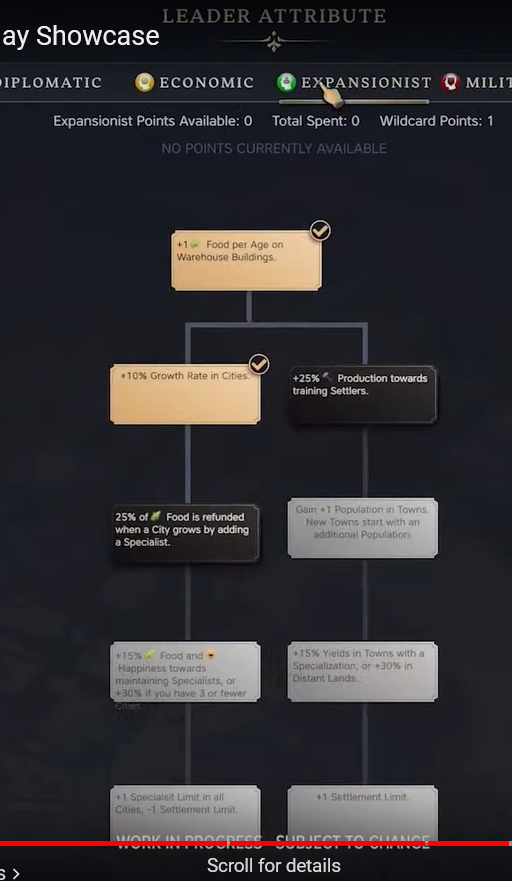Mr Jon of Cheam
Emperor
- Joined
- Oct 26, 2017
- Messages
- 1,358
Populous works but not sure it's any better? Populous fits tall quite well, expansionist fits wide quite well. Neither quite works for the other but they're both passable.Populous covers both IMO.
I think the issue is that there shouldn't be bonuses that help both increase a civilization's population density and the territory covered by that civilization. The two should be somehow opposed, being simultaneously good at both cuts away a lot of the game's dilemmas. It would make more sense, IMO, to have one adjective that applies to civs that are mostly cities with lots of specialists, and another to civs that are mostly towns and/or rural districts. But having civs that are just "good at population" feels too broad, because pop is the most fundamental and powerful resource in any Civ game.
Have we seen the Expansionist tree? Does it allow you to be good at both or are there separate bonuses for tall and wide that encourage you to choose?
Edit: Ah, confirmed there are two paths. So yeh, I don't think I agree that Populous is better, it's about the same imo.



 (Also he's crazy. My spinach puffs are amazing. I need to make them again sometime.)
(Also he's crazy. My spinach puffs are amazing. I need to make them again sometime.)